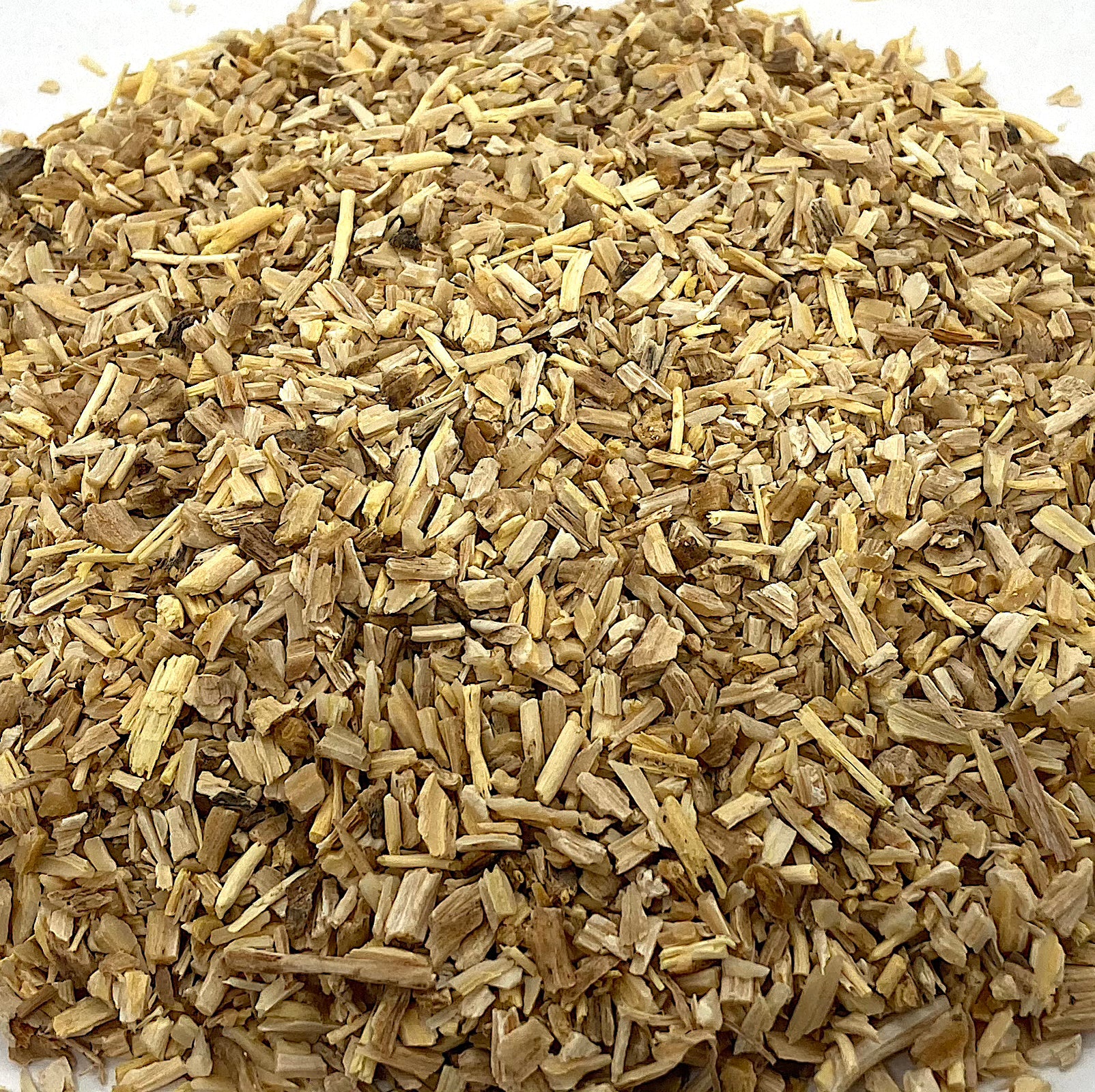Description
INDIA. Shatavari (Asparagus racemosa) Root, Cut and Sifted, Certified Organic
Common names: Wild Asparagus, Hundred Roots, Buttermilk Root, Sparrow Grass, Satavar, Shatamull, Abhiru, Kilwari, Pilligadu, Pinna Pichar, Norkanto, Misri, Narbodh, Vari, Chhotta Kalu, Ekalkanto, Gurjadisti, Asvel, Sadamoolam
Family: Asparagaceae
Wild Shatavari is a grass-like or climbing plant that can reach 3 to 7 feet in height. It grows wild in some higher altitude areas of the Indian subcontinent, and is cultivated in China and Africa as well as India, Nepal, and Sri Lanka.
In Ayurvedic medicine Shatavari is known as one of the rasayana herbs, said to enhance physical and mental health and increase longevity by strengthening all body tissues. It is also classified as an adaptogen, a plant that normalizes body functions and promotes resistance to stress. Some of the main traditional uses of Shatavari target digestive issues, including ulcers and diarrhea; women’s reproductive and sexual health, including fertility and lactation; the nervous system, including epilepsy; and immune modulation and resistance to infection and pain.
Shatavari should be avoided during pregnancy.
*These statements have not been evaluated by the FDA. These products are not intended to diagnose, treat, cure or prevent any disease.









